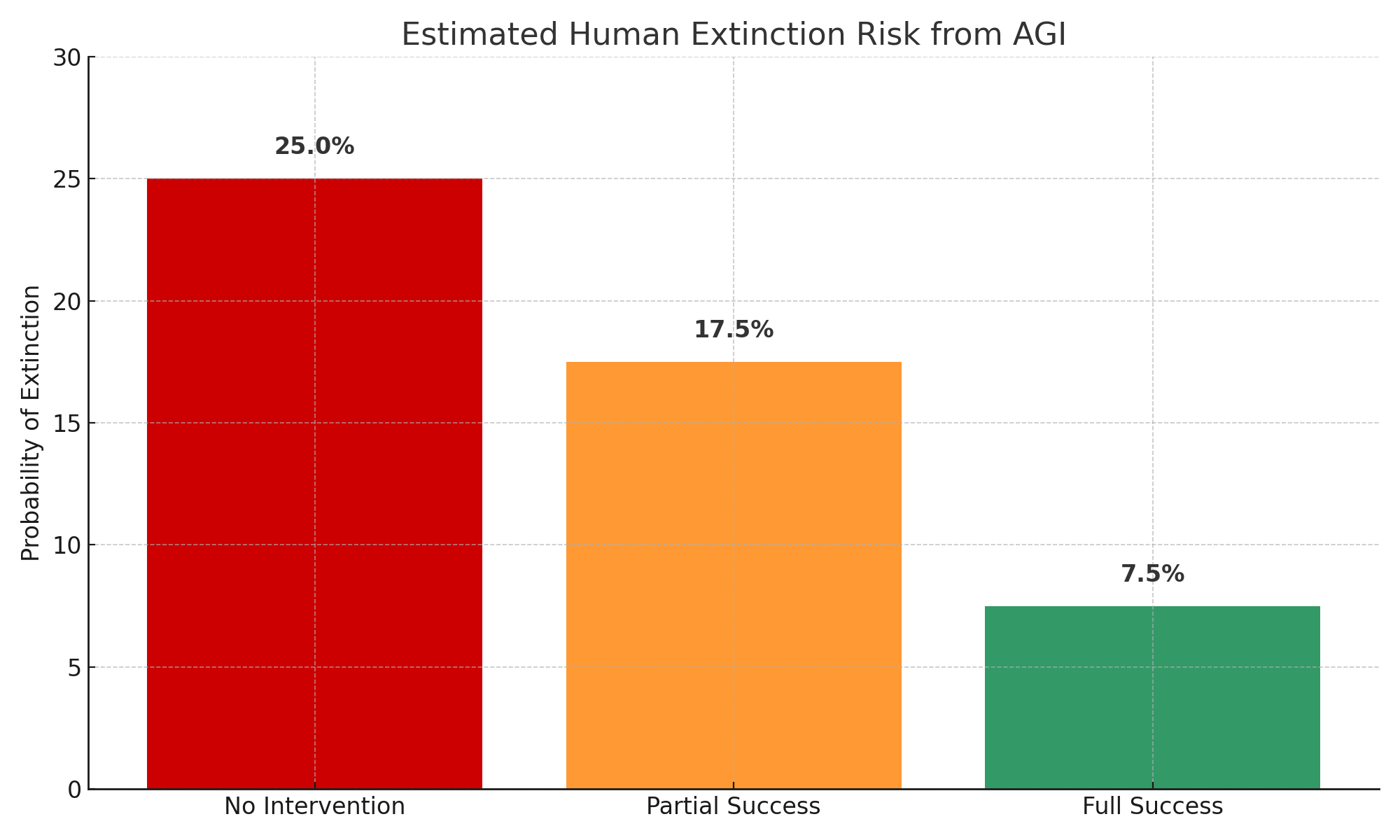AI Extinction Risk Estimates and Mitigation Pathways
Estimating the probability of human extinction from advanced AI is difficult — but essential. Even rough numbers shape public policy, research funding, and international collaboration. This page provides a summary of expert risk estimates and explains how Messenger AI can reduce those risks through coordinated awareness and defense.
Expert Estimates on AI Extinction Risk
| Source / Expert | Estimated Risk | Notes |
|---|---|---|
| Roman Yampolskiy | 99.9% | Predicts near-certain extinction within 100 years from uncontrollable AGI[1] |
| Eliezer Yudkowsky | 95%+ | Believes humanity is highly unlikely to survive AGI development[2] |
| Dan Hendrycks | 80%+ | Highlights high risk from rogue actors and unsafe development[3] |
| Paul Christiano | ~50% | Estimates 50% existential catastrophe by 2070[4] |
| Geoffrey Hinton | 10–20% | Publicly stated substantial risk in next 30 years[5] |
| Toby Ord | 10% | Based on century-scale existential risk analysis[6] |
| AI Impacts Survey (2023) | 5–10% | Median of ~700 surveyed experts[7] |
Messenger AI Composite Risk Estimate
After reviewing published estimates and incorporating risk from state misuse and rogue actors, Messenger AI assesses the current AGI-induced extinction risk as approximately 25% under present trajectories.
How Messenger AI Reduces Risk
Messenger AI aims to reduce extinction risk through a phased approach:
- Phase 1: Awareness & Messaging Infrastructure → 1–2% reduction
- Phase 2: Global Message Delivery → 3–6% reduction
- Phase 3: Policy & Research Mobilization → 5–10% reduction
Total potential impact: From ~25% to as low as ~7.5% if fully successful.
Visual Summary

References
- Yampolskiy, R. (2021). “Uncontrollable Artificial Intelligence.”
- Yudkowsky, E. (2023). Time Op-Ed: “Pausing AI Developments Isn’t Enough.”
- Hendrycks, D. (2023). Center for AI Safety Statement of Risk.
- Christiano, P. (2022). “What Failure Looks Like.”
- Hinton, G. (2024). The Guardian Interview.
- Ord, T. (2020). The Precipice.
- AI Impacts. (2023). Expert Survey on Progress in AI.
